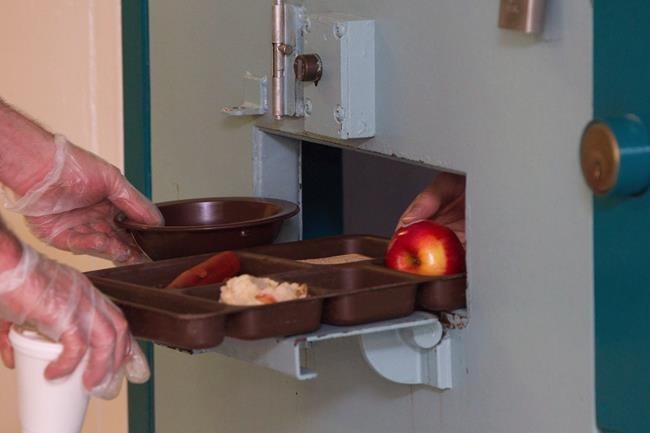OTTAWA — An independent panel tasked with overseeing the segregation of inmates in federal prisons says the Correctional Service of Canada blocked it from doing its job.
Anthony Doob, the noted criminologist who chaired the panel, said its work was stymied by the inability to get usable information from the federal corrections service about its use of structured intervention units, an alternative to solitary confinement.
"Very simply, this panel has not been allowed to do its work," Doob, professor emeritus at the University of Toronto, wrote in an Aug. 19 memo attached to the report.
The federal government had appointed the advisory panel to oversee the implementation of structured intervention units. They are meant as a way to deal with inmates who pose risks to security or themselves without resorting to solitary confinement, which has also been used as a way to punish prisoners.
The Liberal government passed legislation last year that purported to eliminate solitary confinement as an option in federal institutions as of the end of November.
Human rights organizations have argued, however, the units were merely a rebranded version of solitary confinement.
The new units were also part of a response to recommendations from the coroner’s inquest into the 2007 death of 19-year-old Ashley Smith. She strangled herself in a segregation cell at Grand Valley Institution in Kitchener, Ont., as prison guards looked on. She had spent more than 1,000 days in segregation before her death.
An Ontario coroner's inquest in 2013 ruled her death a homicide and made 104 recommendations, including the banning of indefinite solitary confinement.
In November 2019, the independent advisory panel requested data from the Correctional Service of Canada it said was necessary to carry out its oversight duties. It needed to learn how the new structured intervention unit regime differed from the previous practice of segregating inmates.
Some of this requested information included queries about the number of hours prisoners assigned to those units spend out of their cells and the number of hours of meaningful human contact they receive — both important aspects of the new regime.
The panel says the federal corrections service did not respond to its initial request until February — three months later. In its response, the corrections service said it had not decided whether it would allow the panel to have information about the operation of the units.
"No reason for their hesitation on this issue was offered. This revelation by CSC came to the panel as complete surprise," the report said.
"It should be remembered that our data request had been submitted three months earlier. Nothing had been communicated to us, in the intervening three months, that there would be any problem in providing us with the data we requested."
The panel wrote to Public Safety Minister Bill Blair, but did not receive a response.
Some data was finally provided in May of this year, but Doob said the files were not usable due to inconsistencies and missing key indicators.
The report noted CSC did offer to make corrections staff available for interviews and invited panel members to examine its policies and notes from meetings.
Doob said this information would have been useful, but it would not reveal details such as which institutions are more likely to send prisoners to the structured intervention units, the amount of time prisoners spent in cells and other key data.
The COVID-19 pandemic would have likely hampered the work of the panel even if it had received the information it asked for last November, Doob said. But he said the delays in getting the data from the corrections service has meant there has been no independent oversight over the new structured intervention units during the first seven or eight months they have been operating.
Now, the panel no longer exists. The volunteer members' one-year appointments have either expired or will expire within a few weeks.
Prime Minister Justin Trudeau said Wednesday the federal government is taking the report from the panel seriously.
He said Blair is engaging with the federal corrections service on the issue and will have more to say about it in the coming days.
This report by The Canadian Press was first published Aug. 26, 2020.
Teresa Wright, The Canadian Press



